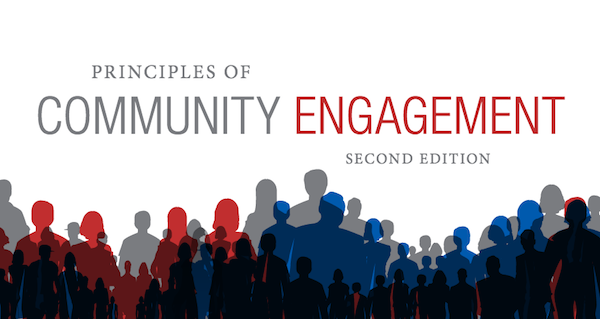
I’m visiting family before I head back up to Vermont. Yesterday I convinced my dad to go get a library card in the town he’s lived in for ten years. My dad is one of those “Hey, why borrow it when you can buy it?” people but we trundled over to his library anyhow because I wanted to see it and while we were there, I suggested he get a card.
Let me first mention that even though the experience at the library wasn’t great, I totally understand why that was the case, and I’m not trying to do any public shaming thing here (hence no link). I just think that there’s a sense in which we’re always saying “Hey libraries are more popular than ever!” but there are also people who just plain old never use the library — one of the big challenges of outreach is to identify these people and see if there are ways to make the library appeal to them — and I wouldn’t be surprised if my dad is one of them.
So, we went to the library. The library is being renovated so it’s a bit of a challenge to get inside, lots of uneven sidewalks and unclear signage. My dad is seventy and doesn’t really like being outside of his comfort zone so we were already a little confused when we got there. We went to the circ desk which was being staffed by one obvious volunteer and one person who may have been circ staff or may have been a librarian or who may have been both. No one had name tags. The woman at the desk was doing the typical multi-tasking thing, helping a lot of people at once, and asked my dad “Can I help you?” He said he was there to get a library card. She went off to get the forms he needed to fill out. Actually I knew that was what she was doing. To his mind she just turned away and started answering someone else’s questions and left us standing there.
She came back and asked for some identification and my dad gave her his driver’s license which showed that he lived in the town. At this point I sort of expected a “Oh you’re not a summer tourist!” awareness but that didn’t happen. She handed us a form and told us to fill it out and meet her at the reference desk (about five feet away) when we were done. The form was your standard one page application. This is a photo of my dad filling it out. We waited for her to come back to the reference desk for about five or ten minutes while she continued to answer other people’s questions (someone needed to use a computer, someone couldn’t find the phone books). At one point she got up to show someone where to find something and then she came over to us and said to the circ staff “I’m going to help this man because he’s been waiting so patiently” which I found a little odd. The library had what seemed to be a normal amount of people for a Monday afternoon, and yet it seemed chaotic for whatever reason.
We then stood by the reference desk while she retyped what my dad had written into the computer. She had trouble reading my dad’s email address (he writes in all caps) and made him read it out loud to her a few times. His email domain is tomandcindy.com and she crossed out what my dad had written and wrote it out underneath with an ampersand in it. My dad had to politely point out that email addresses don’t have ampersands, ever. I couldn’t figure out why she couldn’t see what his email address was by reading it, maybe I’m just attuned to his writing. After doing this, she handed us a card and asked “Can I help you find anything?” We said no and left. No welcome brochure, no “welcome to the library!” nothing.
Turns out the library had sent us a welcome email which we got when we got home a few hours later. It included a link to the catalog and some information about the library network and, of course, my dad’s library card number and PIN in plain text (libraries are not alone in this terrible practice, but it makes me cringe nonetheless). My guess is that my father will never go back to the library. There was some good-natured ribbing about this when we got home. I’m aware that it’s not the library’s job to make all sorts of different people feel like it’s their very own place and cater to their every need and personality tic, but then again it sort of is, isn’t it? I’ll be thinking about this some more while I think about how my library welcomes new people to the community.



